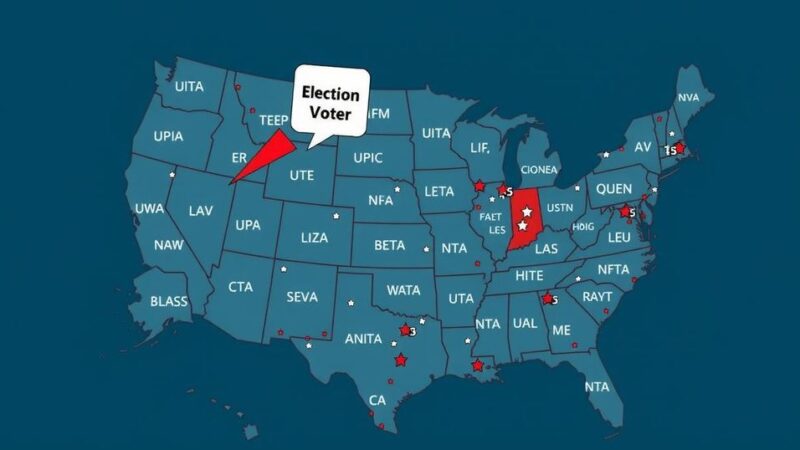Jewish voters in Pennsylvania hold critical sway in the upcoming election, with many feeling disillusioned and undecided amid concerns over antisemitism and Israel. The Republican Party is intensifying efforts to attract these voters, leveraging extensive voter data, while Democrats are striving to affirm their support for the Jewish community. The outcome of the election is poised to hinge on the decisions of this demographic, which reflects broader national sentiments and concerns.
In the critical battleground state of Pennsylvania, Jewish voters hold a significant sway in the upcoming election, with many remaining undecided amid pressing concerns surrounding antisemitism and Israel’s ongoing conflict with Hamas. Activist Stephanie Spielman epitomizes this sentiment, expressing her disillusionment with the Democratic Party’s engagement with the Jewish community, stating, “There’s a feeling of real emptiness, kind of hollowness.” As a long-time Democrat who has opted to withhold her vote from the party this election cycle, Spielman reflects the apprehension felt by many within the community. The Jewish vote, albeit comprising just over 2% of the population, is crucial in swing states like Pennsylvania, which was won by Joe Biden in 2020 by a mere 82,000 votes. The Republican Party is making unprecedented efforts to attract Jewish voters, with the Republican Jewish Coalition employing targeted strategies based on extensive voter data. Matt Brooks, CEO of the Coalition, mentioned, “We know, almost to a voter, what the issues are that motivate them, and we can deliver a message.” Individuals like former Democratic Representative Peter Deutsch have shifted allegiance, aiming to persuade fellow Jewish voters that the Biden administration lacks firmness in supporting Israel. He argues, “The most important thing that the president of the United States does is try to achieve and maintain world peace, and I don’t think it’s a close call on those issues in terms of Trump versus Harris.” Conversely, Democrats, recognizing the rising number of undecided Jewish voters, are stepping up efforts to reaffirm their commitment to the Jewish community. Organizations such as the Zioness Action Fund are working to remind voters of the Biden administration’s support for Israel and efforts against antisemitism. Amanda Berman from Zioness asserts, “There are a lot of concerns that could be better addressed, for sure.” Campaigns on both sides now intensely focus on messaging that highlights the perspectives of undecided voters. Many Jewish constituents, resonating with concerns about personal safety and how their community is represented, are grappling with the narratives and accusations levied by both parties. Judy Willner’s interpretation of Trump’s remarks encapsulates this worry, as she articulates her discontent towards his handling of Jewish concerns while her husband remains uncertain about his choice: “I’m totally undecided. I don’t know what lever I’m gonna pull when I go to the booth.”
The article highlights the significance of Jewish voters in Pennsylvania during the 2024 presidential election, particularly in the wake of recent conflicts that have heightened concerns surrounding antisemitism and support for Israel. As a traditional stronghold for Democrats, this demographic has shown signs of division amid dissatisfaction with how the party is addressing community concerns. The Republican Party has noticed an opportunity and is making concerted efforts to engage undecided Jewish voters by articulating positions around Israel and antisemitism, necessitating a response from Democratic factions to maintain support.
The forthcoming election in Pennsylvania underscores a pivotal moment for Jewish voters, who are grappling with their political loyalties amid rising antisemitism and complexities surrounding U.S.-Israel relations. As both parties intensify their outreach efforts, undecided voters like Spielman and the Willners illustrate a microcosm of larger national sentiments. The outcome in this swing state could play an instrumental role in determining not only the state’s electoral votes but potentially the presidency itself.
Original Source: www.cnn.com






